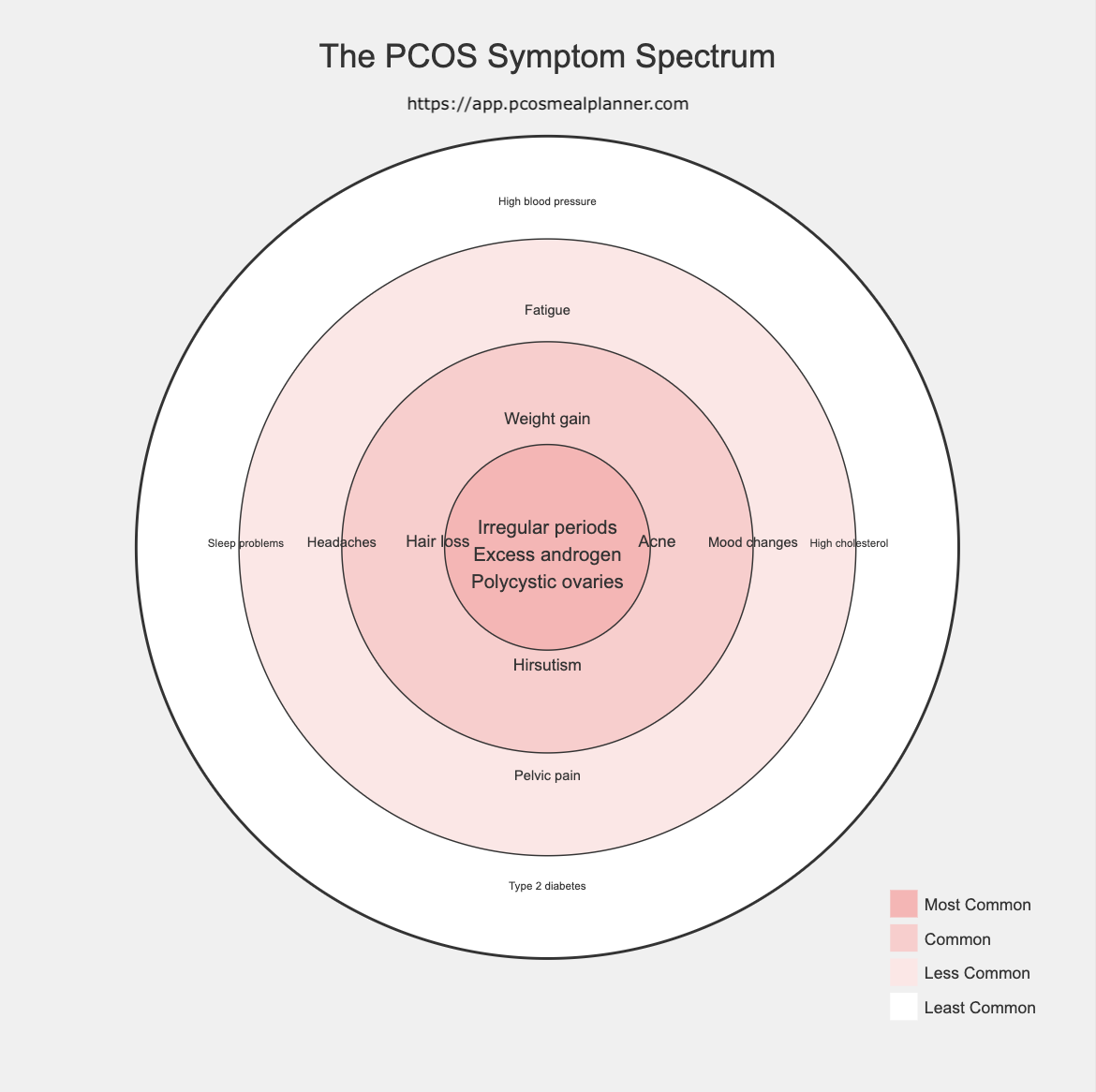Stress is a common trigger that can exacerbate the symptoms of Polycystic Ovary Syndrome (PCOS). Understanding how to manage stress effectively is crucial for those living with PCOS. This article explores practical and gentle ways to reduce stress and its impact on PCOS.
Understanding the Connection Between Stress and PCOS
PCOS is not just a reproductive disorder but also involves metabolic and psychological components. Stress can worsen PCOS symptoms by influencing hormone levels and insulin resistance. Managing stress is therefore vital for overall health and well-being.
Practical Stress Management Techniques
Reducing stress can seem challenging, but there are several effective strategies that can help:
- Regular Exercise: Activities like walking, yoga, or Pilates not only improve physical health but also reduce stress by releasing endorphins, the body’s natural mood elevators.
- Mindfulness and Meditation: These practices help calm the mind and reduce anxiety, which is often heightened in PCOS sufferers.
- Adequate Sleep: Ensuring you get enough sleep is crucial.
Lack of sleep can exacerbate stress, worsen insulin resistance, and impact hormone levels.
- Nutritional Adjustments: Eating a balanced diet rich in vegetables, whole grains, and lean proteins can stabilize blood sugar levels and improve mood and energy.
- Time Management: Organizing your schedule to avoid last-minute rushes can significantly reduce stress.
Prioritizing tasks and setting achievable goals are key strategies.
Creating a Supportive Environment
Building a supportive environment is essential for managing PCOS:
- Communicate Openly: Share your feelings and experiences with friends or family who understand your condition.
This can alleviate emotional stress and provide comfort and support.
- Join Support Groups: Connecting with others who are also managing PCOS can provide insights and mutual support in dealing with stress related to PCOS.
While managing stress is just one aspect of controlling PCOS, it plays a significant role in improving symptoms and enhancing quality of life. Implementing these strategies can help you lead a more balanced and healthier life despite your PCOS diagnosis.

Extra Tip
Try incorporating herbal teas known for their calming properties, such as chamomile or peppermint, into your daily routine. These can provide a natural and soothing effect, helping to manage day-to-day stress.
How This Article Was Made
The information in this article was carefully gathered from authoritative sources, including medical journals and health organization websites, to ensure accurate and helpful content.
Key resources include articles from the National Institutes of Health (NIH) and recent studies from medical journals focusing on PCOS and stress management.
Frequently Asked Questions on Managing Stress for PCOS
1. How does stress physically affect my PCOS symptoms?
Stress can exacerbate PCOS symptoms by increasing cortisol levels, which may worsen insulin resistance and affect hormonal balance. This can lead to more pronounced symptoms such as weight gain, irregular menstrual cycles, and increased androgen levels.
2. Can reducing stress alone help in managing PCOS?
While reducing stress is crucial, managing PCOS most effectively involves a comprehensive approach including diet, exercise, and possibly medication. Stress reduction is one component that supports overall management strategies to improve your symptoms and health.
3. Are there specific types of meditation that are more effective for PCOS?
Mindfulness meditation and guided visualizations can be particularly effective for PCOS as they help reduce overall stress levels and focus on body awareness, which can be beneficial for hormonal balance and emotional well-being.
4. How long does it take to see changes in my PCOS symptoms after starting stress management practices?
Changes can vary depending on the individual, but many people notice improvements in their symptoms and overall well-being within a few weeks of consistent stress management practices such as regular exercise, meditation, and adequate sleep.
5. What should I do if stress management techniques are not helping with my PCOS symptoms?
If you do not see improvement after consistently applying stress management techniques, consider consulting with a healthcare provider. They might suggest adjusting your treatment plan or exploring other interventions that can be more effective in conjunction with stress management.
Recommendations for Integrating Stress Management into Your PCOS Care
Effectively managing stress is a key component of controlling PCOS symptoms. Here are practical recommendations to incorporate stress management strategies into your daily routine:
- Establish a Daily Routine: Create a daily schedule that includes specific times for relaxation and stress-reduction activities. Consistency can enhance the benefits of these practices.
- Practice Regular Physical Activity: Engage in at least 30 minutes of moderate exercise most days of the week. Activities like brisk walking, cycling, or yoga can significantly reduce stress and improve insulin sensitivity.
- Incorporate Mindfulness Practices: Dedicate time each day for mindfulness exercises such as meditation or deep breathing. These practices help calm the mind and reduce overall stress levels.
- Optimize Your Sleep Environment: Ensure your sleeping area is conducive to rest. Consider blackout curtains, white noise machines, or essential oils to improve sleep quality, as poor sleep can exacerbate stress.
- Seek Professional Help: If stress becomes overwhelming, consider speaking with a therapist who specializes in stress management or PCOS. They can provide tailored strategies and support.
- Nutrition and Hydration: Maintain a balanced diet rich in fruits, vegetables, and whole grains and stay hydrated. Proper nutrition supports mood stability and can help mitigate stress.
By following these recommendations, you can effectively manage stress, which is crucial for reducing the impact of PCOS on your health and well-being.
Understanding Hormonal Balance and PCOS
PCOS disrupts hormonal balance in the body, leading to various symptoms such as irregular periods, acne, and hair growth. Understanding how hormonal imbalances contribute to PCOS can empower individuals to better manage their condition.
Key hormones affected by PCOS include insulin, testosterone, and estrogen. Insulin resistance, common in PCOS, leads to elevated insulin levels, which can stimulate the ovaries to produce excess testosterone.
This hormonal imbalance contributes to symptoms such as acne, hirsutism (excess hair growth), and difficulty conceiving.
By addressing hormonal imbalances through lifestyle modifications, medication, and targeted therapies, individuals with PCOS can effectively manage their symptoms and improve their overall health.
The Role of Stress in Hormonal Dysregulation
Stress exerts a significant impact on hormonal balance, exacerbating symptoms of PCOS. Understanding how stress affects hormone levels can shed light on the importance of stress management in PCOS management.
Cortisol, often referred to as the stress hormone, is released in response to stressors. Chronic stress can lead to dysregulation of cortisol levels, which in turn can disrupt other hormones involved in PCOS, such as insulin, testosterone, and estrogen.
By adopting stress management techniques, individuals with PCOS can help restore hormonal balance and alleviate symptoms associated with hormonal dysregulation.
Exploring Alternative Therapies for Stress Reduction
In addition to conventional stress management techniques, exploring alternative therapies can provide additional support for individuals with PCOS.
Acupuncture, for example, has shown promising results in reducing stress and improving hormonal balance in women with PCOS. By targeting specific acupuncture points, this ancient practice helps regulate the body's energy flow and promote relaxation.
Other alternative therapies such as aromatherapy, massage, and herbal supplements may also offer benefits in reducing stress and supporting overall well-being in individuals with PCOS.
Take Action and Spread Hope
Now that you have learned about practical strategies for managing stress and its impact on PCOS, it\'s time to take action and spread hope to others facing similar challenges.
Share Your Journey
Share this article with friends, family, or support groups to spread awareness about PCOS and the importance of stress management. Your journey and insights can inspire others to take proactive steps towards better health.
Join the Conversation
Engage with the PCOS community online or in-person to share experiences, resources, and support. Together, we can empower each other to navigate the complexities of PCOS with resilience and positivity.
Take Small Steps Every Day
Remember, managing PCOS is a journey, and every small step counts. Incorporate stress-reducing activities into your daily routine, prioritize self-care, and seek professional support when needed. By taking proactive steps, you can reclaim control of your health and well-being.
Stay hopeful, stay positive, and remember that you are not alone in this journey. Together, we can overcome the challenges of PCOS and thrive.
Join Our Community
Ready to take the next step in managing your PCOS? Join our supportive community where you can share experiences, tips, and receive encouragement. Follow us on our Facebook page or join our Telegram channel to stay updated and connected with others navigating PCOS.
Together, we can empower each other and make our journeys a little easier.
PCOS Self-Assessment Checklist
Use this checklist to assess your symptoms and take the first step towards better health management:
- Do you have irregular or missed periods?
- Have you noticed excessive hair growth on your face, chest, or back?
- Are you struggling with weight gain or difficulty losing weight?
- Do you experience acne or oily skin?
- Is your hair thinning or are you experiencing hair loss on your scalp?
- Have you noticed darkening of the skin in certain areas?
- Do you have skin tags?
If you answered "yes" to any of these questions, consider discussing your symptoms with a healthcare provider for a thorough evaluation. Early diagnosis and treatment can make a significant difference in managing PCOS.
Want to improve your diet? Here are some tips based on our recommendations:
- Increase your intake of fruits and vegetables.
- Choose whole grains over refined grains.
- Incorporate lean proteins into your meals.
- Limit sugary foods and drinks.
- Stay hydrated by drinking plenty of water.
Making these dietary changes can help manage your symptoms and improve your overall health.
Next Steps
Now that you have learned about getting tested for PCOS in the Philippines, here are some actions you can take to feel hopeful and empowered:
- Schedule an Appointment: Book a visit with your healthcare provider to discuss your symptoms and get tested for PCOS.
- Join a Support Group: Connect with others who have PCOS to share experiences, tips, and support.
- Start a Healthy Lifestyle: Make small changes to your diet and exercise routine to help manage your symptoms.
- Stay Informed: Keep learning about PCOS and how to manage it effectively by reading reliable sources and staying updated on the latest research.
- Share Your Knowledge: Help others by sharing this article and the information you've learned. Together, we can raise awareness and support each other in managing PCOS.
Join Our Community
Stay connected and get ongoing support by joining our community:
- Sign up for our newsletter to receive PCOS-friendly recipes, tips, research updates, and more straight to your inbox.
- Join our Telegram channel for real-time updates and discussions.
- Follow us on Facebook to connect with others, share your experiences, and get inspired.
We're here to support you every step of the way. Let's make managing PCOS a little easier together!
Join Our PCOS Community
You're not alone in your journey with PCOS and hormone management. Connect with a supportive community and access valuable resources:
- Get Personalized Guidance: Try our AI Coach and Nutritionist for tailored advice on managing your symptoms.
- Stay Informed: Subscribe to our newsletter for the latest PCOS-friendly recipes, research updates, and management tips delivered straight to your inbox. Don't miss out on exclusive content that could revolutionize your PCOS journey!
- Join the Conversation: Follow us on Instagram for daily inspiration and tips.
- Get Instant Updates: Join our Telegram channel for real-time news and support.
- Connect with Others: Join our Facebook community to share experiences and find support.
By joining our community, you're not just gaining resources – you're becoming part of a movement towards better understanding and management of PCOS. Together, we can navigate the challenges of PCOS and celebrate our successes.
Don't wait to take control of your health – join us today and start your journey towards better hormone balance and overall well-being!

Community Comments
Community Comments
Add a comment